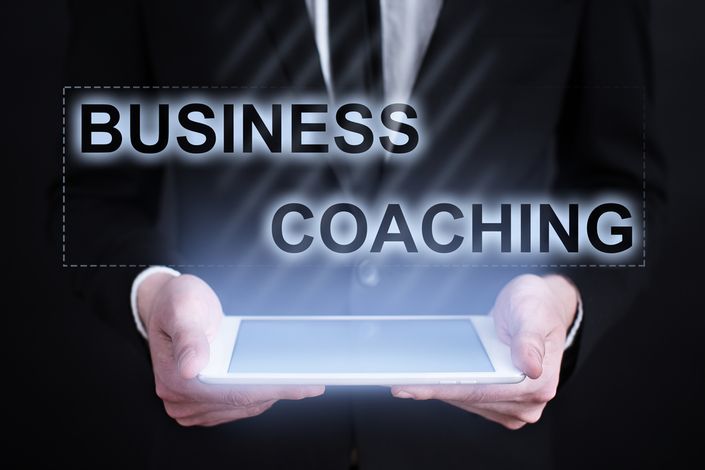
What you will learn
Lean Six Sigma Master Black Belt Certificate
- Aligned with ASQ Body of Knowledge
- Hands-on Practical Exercises
- Completion of Two Projects
- 20 Hours of Live Group Coaching
- Access to Over 800 Practice Quiz Questions
- Final Certification Exam

Master Black Belt Schedule
Winter 2025
All live coaching sessions are recorded for future reference and review.
Master Black Belts Certificate
Master Black Belts (MBB) are change agents who lead a large process improvement team and activities across an organization, develop organization’s Lean Six Sigma implementation framework and are accountable for all aspects of the organization’s Lean Six Sigma program. MBB ensure that a project’s portfolio is aligned with the organization’s strategic objectives through working with the senior leadership team(s). They also identify and manage training plans and coach BBs and GBs. Their focus is on improvement, optimization and innovation of the enterprise value stream; which is often in manufacturing and service organizations across a number of industries such as government, operations, IT, healthcare, pharmaceuticals, finance, and construction.
This hands-on and highly interactive web-based course will deliver to students a complete understanding of the theory and practical application of Lean Six Sigma and Innovation principles and tools. Students will have the opportunity to work on Master Black Belt level case studies and/or their actual work-based problems they are currently facing. Upon completion of this course, students will be equipped with the necessary practical skills and prepared to start working on their Master Black Belt Lean Six Sigma Innovation projects..
Example Curriculum
- 1.1 Learning Outcomes and Topics for Module 1 (1:17)
- 1.2 Why Lean Six Sigma (20:47)
- 1.3 Lean Six Sigma History (10:46)
- 1.4 Business Performance Excellence and Benchmarking (26:06)
- 1.5 Lean Six Sigma Synergy (10:34)
- 1.6 Six Sigma Methodology (11:55)
- 1.7 Lean Methodologies (11:07)
- 1.8 Other Business Improvement Methodologies (4:41)
- 1.8 Other Business Improvement Methodologies (4:41)
- Zoom meeting 1 (71:31)
- Module 2 Intro (1:34)
- 2.1 Voice of the Customer (6:18)
- 2.2 Customer Personas (7:12)
- 2.3 RFM Segmentation (7:23)
- 2.4 Kano Analysis (4:38)
- 2.5 Baseline Customer Satisfaction – Net Promoter Score (9:18)
- 2.6 Financial Measures (10:01)
- 2.7 Business performance measures (6:46)
- 2.4 Kano Analysis (4:38)
- Zoom meeting 2:
- 3.1 Strategy Development Process (6:41)
- 3.2 Strategy Planning and Research (5:31)
- 3.3 Porter’s Five Forces (6:38)
- 3.4 PEST Analysis (5:44)
- 3.5 Product Life Cost (5:33)
- 3.6 BCG Growth-Share Matrix (4:53)
- 3.7 The Ansoff Matrix (5:30)
- 3.8 Value Chain Analysis (5:06)
- 3.9 Core Competences Analysis (2:57)
- 3.10 SWOT TOWS Analysis (3:45)
- 3.11 Strategy Maps and Balanced Scorecard (7:19)
- Zoom meeting 3:
- 4.1 Tools used to define projects (3:47)
- 4.2 VOC CTQ Alignment (4:00)
- 4.3 QFD (4:16)
- 4.4 FMEA (7:03)
- 4.5 Customer journey mapping (8:29)
- 4.6 Problem Statement (9:02)
- 4.7 Affinity Diagram (3:42)
- 4.8 Scoping Tools (2:53)
- 4.9 Project Charter (3:29)
- 4.10 Value Stream Mapping (12:18)
- 4.11 VSM Analysis (15:35)
- 4.12 Make Value Flow 8 Types of Waste (5:49)
- 4.13 8 Types of Waste Analysis (9:37)
- 4.14 A3 (4:16)
- 4.15 Opportunities for Improvement (4:51)
- 4.13 8 Types of Waste Analysis (9:37)
- Zoom meeting 4:
- 5.1 Barriers to strategy execution (3:37)
- 5.2 Strategy Execution (8:18)
- 5.3 Hoshin (7:49)
- 5.4 Hoshin Kanri Alignment with Strategic Plan (8:37)
- 5.5 Hoshin Kanri Catch the Ball (6:26)
- 5.6 KPI Flow (9:23)
- 5.7 Portfolio and program governance, monitoring, controlling, risk management, and reporting (8:16)
- Zoom meeting 5:
- 6.1 Change management models (Kotter’s 8 Steps, ADKAR) (17:22)
- 6.2 Understand yourself and your team – Personality preferences (DISC and MBTI) (12:47)
- 6.3 Decision making Styles (6:22)
- 6.4 How to overcome organizational barriers - Competing Values Framework (9:28)
- 6.5 Logic Models (4:33)
- 6.6 How to gain commitment. (10:14)
- Zoom meeting 6:
- 7.1 Risk identification FMEA (4:02)
- 7.2 FMEA Types (4:22)
- 7.3 FMEA Process (14:03)
- 7.4 Risk Management Strategies (4:22)
- 7.5 Risk Management Process (14:08)
- 7.6 Build Monte Carlo Model (4:56)
- 7. 7 Model Inputs (3:46)
- 7.8 Sensitivity Analysis & Scenario development (1:30)
- 7.9 Decision making (10:00)
- Zoom meeting 7:
- 8.1What is System Thinking (5:09)
- 8.2 System Thinking Fundamental Concepts (5:25)
- 8.3 Types of system mapping (3:41)
- 8.4 Causal Loops and BOTG diagrams (4:13)
- 8.5 Levels of thinking (8:58)
- 8.6 Ladder of Inference (9:16)
- 8.7 Jahari Window (4:03)
- 8.8 Causal Loop and Stock Flow maps (7:37)
- 8.9 Causal Loop Architypes (8:57)
- Zoom meeting 8:
- 9.1 Training needs analysis (6:12)
- 9.2 Competence development -Training Plan (8:16)
- 9.3 Training program effectiveness evaluation (4:24)
- 9.4 Team Facilitation (6:44)
- 9.5 Project Reviews (5:20)
- 9.6 Team Dynamics
- 9.7 Facilitation
- 9.8 Lean Leadership and Servant Leadership (8:03)
- 9.9 Situational Leadership and Management KATA (22:35)
- Zoom meeting 9: (79:09)
- 10.1 DMAIC Project Review Process (4:03)
- 10.2 DMAIC Project Review Participants (5:35)
- 10.3 DMAIC Project Reviews Benefits (5:24)
- 10.4 Project Review Define Phase (8:25)
- 10.5 Project Review Measure Phase (8:55)
- 10.6 Project Review Analyse Phase (6:10)
- 10.7 Project Review Improve Phase (7:11)
- 10.8 Project Review Control Phase (7:11)
- Zoom meeting 10:
- 11.1 Digital Transformation (4:00)
- 11.2 Industry 4 Technologies (8:26)
- 11.3 Digital Maturity Models (6:09)
- 11.4 Digital Value Transformation (5:51)
- 11.5 Digital Transformation Assesment (9:59)
- 11.6 Big Data (3:28)
- 11.7 ISO 8000-61 (5:52)
- 11.8 Data Quality management (10:10)
- 11.9 Robotic Process automatization (5:00)
- 11.10 Process Mining (8:02)
- 11.11 Data Science (4:13)
- 11.12 Data Mining and Machine Learning (6:13)
- Data Mining Demonstration (9:15)
- Data Mining Demonstration (9:15)
- Zoom meeting 11:
Example Featured Products
Showcase other available courses, bundles, and coaching products you’re selling with the Featured Products block to provide alternatives to visitors who may not be interested in this specific product.




